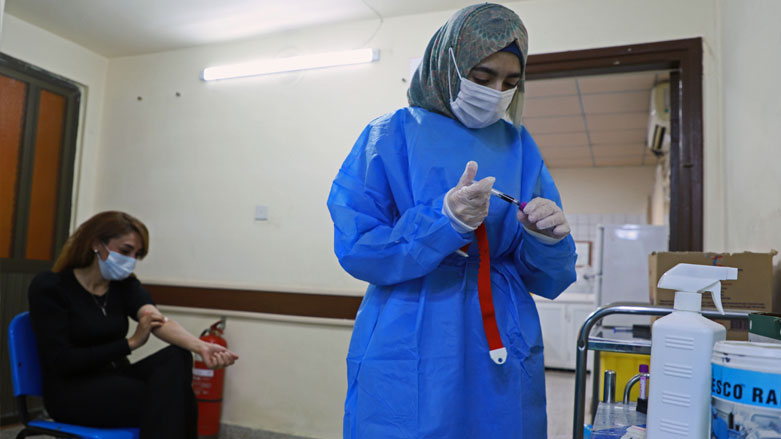COVID-19: Kurdistan Region continues to record over 1,000 daily cases

ERBIL (Kurdistan 24) – The Kurdistan Region’s health authorities registered over 1,200 new COVID-19 cases on Thursday amid alarming surges of the virus in the autonomous region.
Per the regional health ministry’s daily statement, health workers had conducted 6,614 tests during the past 24 hours, raising the total of such tests to 634,334 since the outbreak began in the Kurdistan Region in early March.
Out of the tests conducted in the past 24 hours, the region recorded 1,285 infections. According to figures the Kurdistan Regional Government (KRG) released, the total number of infections has reached 74,334 cases.
The new figures came as the region, on Tuesday, announced the highest daily infections during the same period.
Read More: COVID-19: Kurdistan Region records highest daily infections since start of pandemic
The ministry also recorded 18 deaths in the past 24 hours, raising the total death count to 2,406 fatalities.
Health officials say that over 42,000 have recovered from the highly contagious disease, but it is important to note that the classification of “recovery” indicates that a patient is no longer being actively treated by health professionals, not that they have fully recovered.
Increasingly, medical experts recognize that COVID-19 symptoms, some of them serious, often continue long after an individual’s formal recovery and that various other symptoms such as significant lung damage could be permanent.
Local authorities in Erbil province announced on Monday that anyone who does not wear a mask would be charged with a fine, according to a statement from the Erbil governorate.
The fee, according to authorities, is IQD 20,000 ($14) that would be enforced by local police officers.
The spiking figures in the region and its capital have forced authorities to tighten measures to curb the further spread of the virus.
Editing by Karzan Sulaivany
